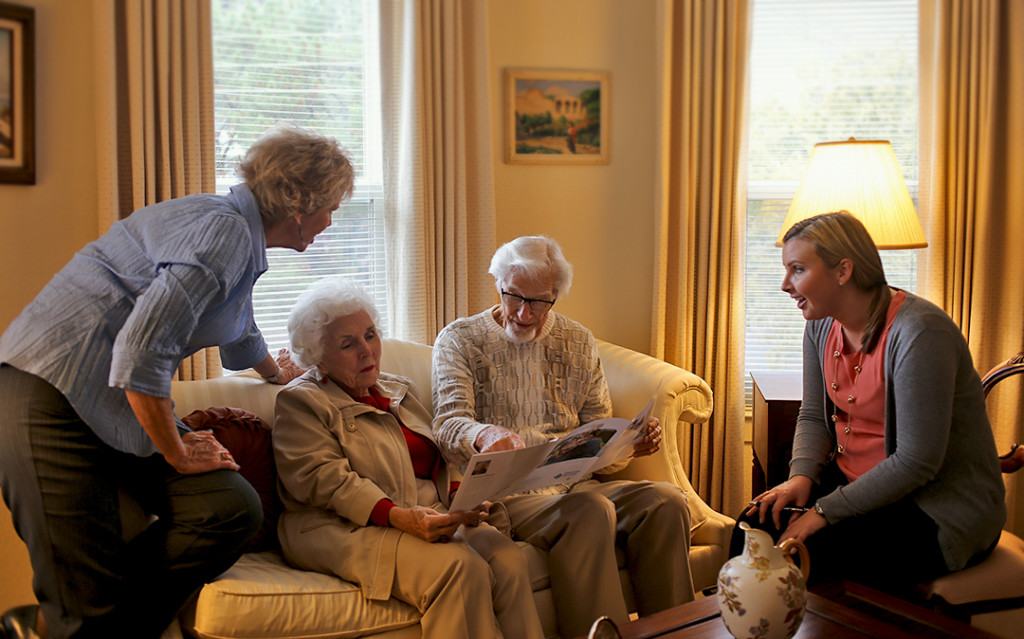Please note: Eldercare Services is a private company that provides families with care management, home care services, advocacy and other professional services on a fee basis. If you have a need for low cost social services or if you need to report an instance of elder abuse, the County of Contra Costa provides resources through several agencies, including Adult Protective Services at (925) 646-2854 and Human Services for the Elderly & Disabled at www.ehsd.org
It is an unfortunate reality that elder abuse occurs on a daily basis. The term abuse covers many circumstances where a person causes or allows physical or metal suffering to an elder person or places them in a situation in which the health or financial resources of the elder is placed in jeopardy.
Types of Elder Abuse:
From California Advocates for Nursing Home Reform
- Abandonment is the desertion of an elder by someone who is a caregiver.
- Abduction is the removal, without the knowledge or consent of the conservator to another state.
- Financial Abuse is the illegal or unethical exploitation or use of an elder’s funds, property, or other assets.
- Isolation is the intentional preventing of an elder from receiving mail, telephone calls or visitors.
- Mental Suffering is the infliction of fear, agitation, confusion through threats, harassment or other forms of intimidating behavior.
- Neglect is the failure to fulfill a caretaking obligation such as assisting in personal hygiene, providing food, clothing or shelter, protecting a person from health and safety hazards, or preventing malnutrition.
- Physical Abuse is the infliction of physical pain or injury, sexual assault, or use of physical or chemical restraints for punishment without a doctor’s order.
Ways to Combat Elder Abuse:
by Linda Fodrini-Johnson, MA, MFT, CMC of Eldercare Services
Financial Abuse:
- Never share personal information over the phone. If a bank or financial institution calls you and asks for any information, do not give it out. Call the phone number on your bank statement or on the back of your credit card to confirm the call was legitimate.
- If you receive an email from a bank or other institution, even if you do have an account with them, do not open anything in an email or call any number listed. Find a phone number from a statement and call that number to check the situation.
- If you are shopping online, look for the secure website emblem at the bottom of their website or check for the “https:” as opposed to “http:” at the start of the web address (URL).
- Use direct deposit for all regular income.
- Shred personal information before putting in the trash.
- Do not allow home care workers or housekeepers access to financial information. Do not ask them to do banking for you.
- Check your credit card charges often. Perhaps daily to a few times a week. My credit cards have been compromised more than once, and we were able to stop the problem by calling the bank and closing the account quickly.
- Be careful with “passwords” – don’t use a simple password for everything. Find lines of poems and use the first letter of each word or a place you visited and scramble some of the letters with numbers. Be sure to change passwords a few times a year.
- Family members can also take financial advantage of someone with a big heart. They often use a sad story, or a big opportunity that they say will make you money, too! Be cautious! Tell them you want to consult your attorney or financial planner first. Probably one of the biggest areas of this type of abuse is converting you to a reverse mortgage. The culprit uses the money and leaves you with little or no equity in your home.
- When you contract for services for any home repair, get the estimate in writing. Check to see if the person is a licensed contractor. Especially relevant, only pay a portion of the total cost upfront. Paying the balance due only when the job is done to your satisfaction. As a deposit, a licensed contractor can only charge the lesser of $1,000 or 10 percent.
- Lotteries where you need to send dollars in order to receive your prize are scams.
- Hiring caregivers privately can be a problem. Don’t use websites like Craigslist. A referral from a friend or family member of someone experienced, might be fine. However, do a national criminal background check. If you hire from a reputable agency, ask about liability insurance.
- Do not let someone in your home who says they are from a “utility” company and needs to check some appliance or the water.
- Keep valuables in locked drawers or safes. Keep purses and wallets out of sight. My mother gave a “glass of water” to someone on a warm day and when the lady left, so did her purse!
Physical Abuse
- It’s any physical harm to the elder, which can be caused by rough handling causing bruising or intentional bodily harm by another. Clues to both physical abuse and neglect can be unexplained weight loss, bedsores, pain when touched, and broken bones.
- Besides obvious observable signs – changes in behavior can also be an indicator of physical abuse or neglect. Look for signs such as agitation, anxiety, confusion, helplessness, depression, and withdrawal to name a few.
Neglect of Care and Self Neglect
- Caregivers are legally responsible to see that clients get the care they need. Especially those that suffer from illness or dementia. Resistance of care and making every effort to secure care should be primary in the minds of family caregivers that don’t want to be charged with “elder abuse”.
- Self-Neglect is prevalent in those who have dementia and live alone. They can be endangering themselves by not properly taking care of their personal hygiene, nutrition, or safety. When this is an issue families and communities need to take action. Therefore, this is the time to bring in Adult Protective Services to help with the intervention. Seniors that are mentally intact can neglect themselves unless they are putting others at risk.
One in nine seniors suffer abuse in some way. One out of 20 seniors suffer financially abuse. According to the National Adult Protection Services Association, almost 90 percent of elder abuse cases involve a family member or other “trusted” relationship.
In conclusion, education is key to preventing elder abuse. Be aware and be safe.


